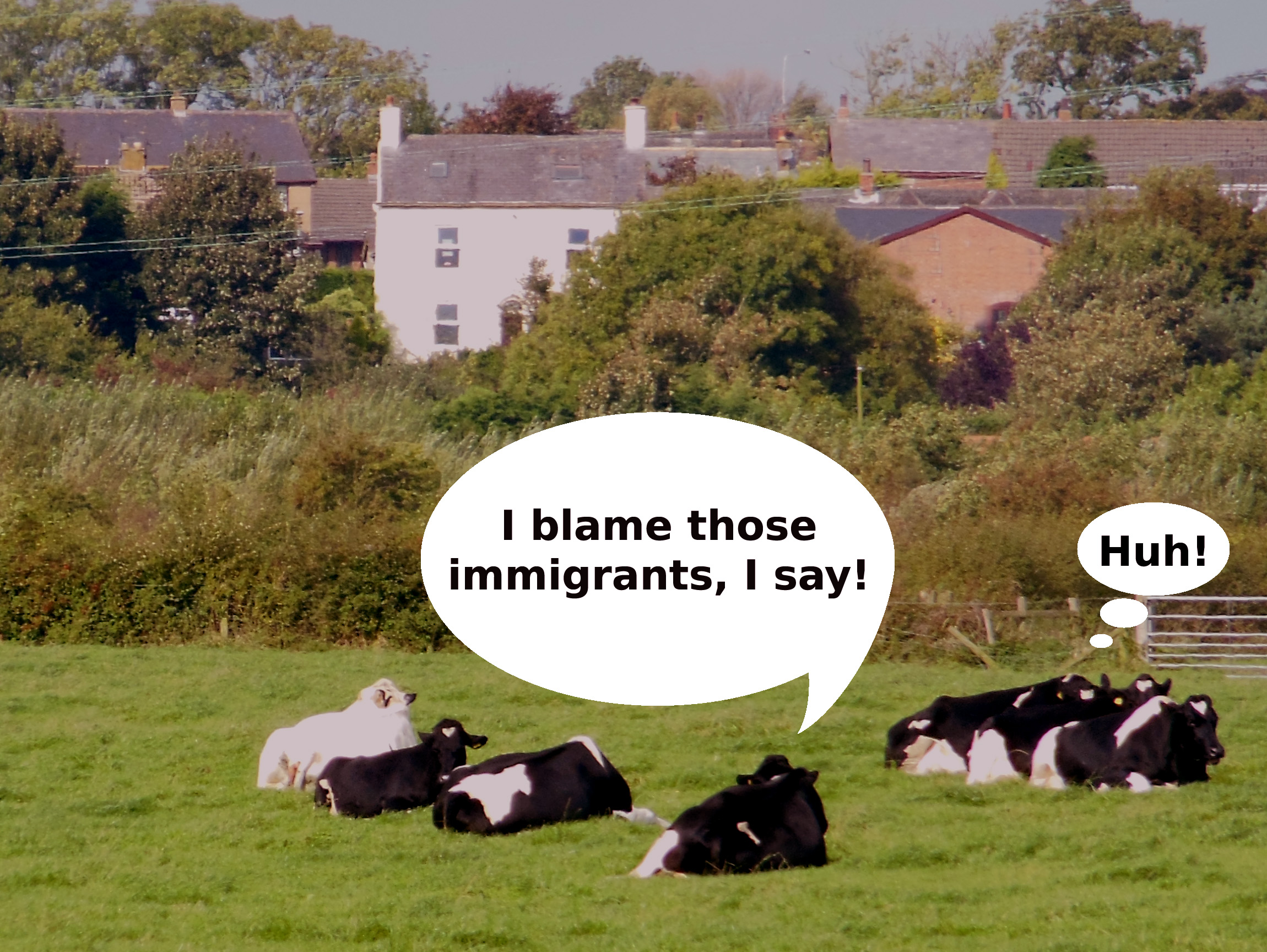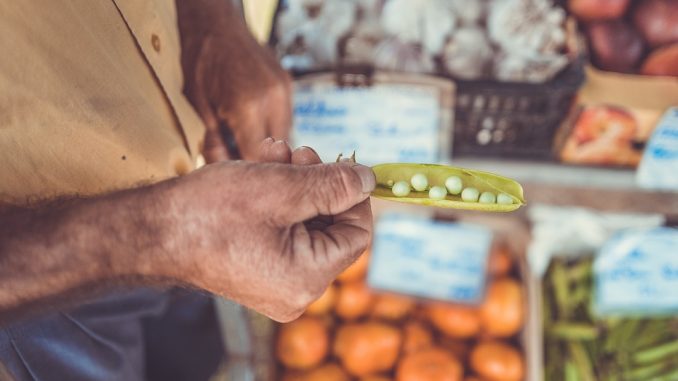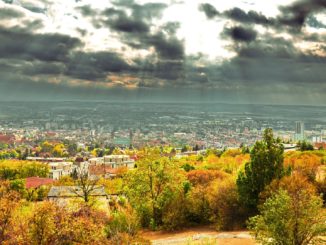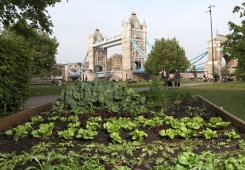
Populism has become a powerful political force in Europe. The current wave of populist movements has seeped through the European countryside from France to Sweden to Poland. Yet despite the emergence of resistance and alternatives to populism, the political debate continues to overlook rural Europe. In the second instalment of a two-part series, Natalia Mamonova shares her insights on populist strategies in the countryside, food sovereignty as a counterforce to these dangerous trends, and the impact the coronavirus crisis is having on right-wing populist movements and rural transformations.
This is an edited transcript of a video lecture by Natalia Mamonova that was organised by the Uppsala Association of International Affairs (video at end of this article). The lecture is based on a research project by Natalia Mamonova, Jaume Franquesa and colleagues from the Emancipatory Rural Politics Initiative.
European populists present themselves as the real champions of the true democracy, who are not afraid to criticise the political establishment at home and “unelected bureaucrats in Brussels”. They are those who speak on behalf of the ordinary people.
It seems like democracy works. So what’s wrong with it? Well, a lot.
Right-wing populists threaten the fundamental values of the European Union: equality, respect for human rights and dignity, democratic freedoms, and the rule of law. They claim to represent the interests of “the people”, while, in fact, they represent elites.
Read part one by Natalia Mamonova below:
Defending Capitalism in the Name of “The People”
Let me give you an example from the countryside.
The Hungarian prime minister Viktor Orbán has expressed his support for family farming many times. In his election campaign in 2010 he appealed to rural voters and promised to support the Hungarian countryside and small-scale farming. This support was also central in his National Rural Strategy. However, this support has never materialised. Instead, Orban’s party Fidesz became associated with representing the interests of corporations, oligarchs and land grabbing.
Here, let me refer to Jean-François Bayart, who argued that populists offer liberalism for the rich, nationalism for the poor. They claim to be protectors of national identity, while at the same time negotiating better global terms for the elite.
Yes, they often criticise transnational agribusiness and the Common Agricultural Policy, but they do not offer any alternatives to neoliberal capitalism. On the contrary, – as Jun Borras said – populist leaders aim to preserve and defend capitalism in the name of “the people”.
By blaming the migrants and minorities, they redirect the people’s anger from the capitalist system and the elites, and stream it against the most vulnerable groups that have no voice to defend themselves.

Populist Strategies in Rural Areas
European populists use different strategies and tactics to reach out to rural voters.
Misinformation, fake news and media manipulation
One of their tactics is misinformation, fake news and media manipulation. The years of neoliberal globalisation resulted in a declining role of the traditional community leaders (such as priests, rural school teachers) who were previously responsible for sharing and interpreting information in the countryside. Today, most rural Europeans have access to the internet or smartphones, which enables right-wing populist agitation and fake news to reach mass audiences.
However, if the propagandistic message does not have an archetypal base in a society, it is inefficient and most likely will be rejected.
In their political campaigns, European populists often engage with narratives and symbols derived from the peasant culture. They appeal to rural communities as “the true protectors of their nation’s culture and heritage”.
Populists often use the images of land, rural landscapes and agriculture to symbolise national sovereignty and national identity.
For example, in Hungary, the fertile arable land is often discussed as the source of the national revival. Hungarian populists employ the ideas of land and farming to connect the nostalgic past with the present, and to visualise the Hungarian nationhood, family and culture.
In the United Kingdom, rural landscapes play an important role in populist mobilisation. The British countryside is portrayed as the “place of white safety” and harmony — a symbol of Englishness — contrary to multicultural cities that are mired in troubles and conflicts.
Appropriation of progressive discourse
Another tactic that populists apply to gain popular support in the countries is the appropriation of progressive discourses of agrarian movements.
European right-wing populists often talk about environmental sustainability, local food networks, slow food. Originally, these ideas were very liberal, socially-inclusive, and democratic. However, populists portrait them in a very simplistic, nationalist, exclusionary way.
For example, the Italian far-right Lega Party often use the left-wing idea of “Made in Italy” food. Initially, “Made in Italy” food was associated with “tradition”, “quality”, “biodiversity”, “ties with the territory”. However, the Lega party formulates it in very nationalist and exclusionary terms, emphasising the word ”Italy” in its label.
Today, the European populists are trying to exploit the coronavirus in their interests. Indeed, they often blame migrants, open European borders and the forces of globalisation for the coronavirus spread. However, this is not always working in their favour.
The harvest season will start soon, and the European farmers desperately need seasonal migrant workers to work on their farms. Otherwise, we all will be without food in the coming months. Several countries – for example, Germany – have already lifted the ban on the migration of seasonal farmworkers from other countries.
Some experts speculate that the current pandemic might destroy right-wing populism. It is too early to talk about this. But! The pandemic will contribute to our rethinking of the ways in which food is produced, distributed and consumed, which may bring positive outcomes.
Food sovereignty as a solution
Since the cause of right-wing populism is the failure of globalised neoliberal capitalism, cosmetic changes will not have a long-lasting effect. We need to change the entire system. But how to change it? Top-down initiatives are unable to do this. The resistance and alternatives should come from below.
Recently, food sovereignty has been discussed as having the potential to erode right-wing populism in the countryside.
You might have heard about food sovereignty. It is very popular in the Global South. And it is gaining its strength in Europe as well.
Food sovereignty is defined as “the right of peoples to healthy and culturally appropriate food and their right to define their own agri-food systems”.
It is simultaneously an ideology, a social movement, a political project, and an alternative model of development.
Alternative to the neoliberal agricultural model
Food sovereignty places the control over production, distribution and consumption of food into the hands of local food producers and consumers, away from the control of multinational corporations and supermarket chains.
It aims to unite various food producers and consumers in a collective effort to create a sustainable localized food system, which could be the alternative to the neoliberal agricultural model.
Yes, it could work as the counterforce to right-wing populism.
It proposes the transformation of the entire neoliberal model. And it makes everyone an active actor in this process.
Similar to right-wing populism, the food sovereignty movement aggregates different group interests into a homogenized voice — “people of the land” against the constructed “other”. In this case, against capitalist agriculture and the corporate monopolies on food systems. But — contrary to populists — food sovereignty is a socially inclusive, global movement, that focuses on equality, social justice and cooperation across borders.
The proposed re-localization of food systems could regenerate a sense of belonging and restore the local identity, which is important in fighting regressive populism.
Urban-rural divide
But. There is always a but.
First of all, the majority of European farmers are so deeply integrated into the neoliberal agri-food industry that any radical transformation would endanger their livelihoods. Not many farmers would like to try this.
Second, in Europe, the ideas of sustainable, organic, local food are mainly shared by progressive urban consumers, rarely by food producers themselves.
Our research indicated that there is a serious and very problematic rural-urban divide in Europe, which limits coalitions between farmers and consumer movements. While urban activists focus on sustainability and alternative food networks, European farmers are more concerned with preserving their way of life and traditions. Sometimes farmers’ discourses and practices are quite conservative and exclusionary, and may support rather than undermine right-wing populism.
The recent wave of farmers protests in Europe falls into this category. You might have followed the news from the Netherlands, where livestock farmers organised a number of protests in autumn 2019. These protests were triggered by the government proposal to limit nitrogen emissions. However, the farmers’ demands went beyond lifting the climate-related restrictions. They called for dignity and respect for their profession, for a better agricultural policy, and more.
Dutch rural sociologist Jan Dauwe van Der Ploeg argued the Dutch farmers’ protests were regressively populist. Farmers did not recognise the fundamental crisis of neoliberal agriculture. They were fighting for the reproduction of the same order, which makes the crisis even worse.

Impact of the Covid-19 Crisis
And here comes the pandemic. I promised to say a few words on the impact of the coronavirus on populism in rural Europe. Well, all that I will say now is very speculative. We still need to see how the world will change after that. But what is for sure, the world will not be the same.
The coronavirus pandemic has exposed the weaknesses of the existing system and creates an opening to contest the neoliberal political consensus. But what is more interesting is the initiatives on the ground.
The pandemic has triggered a strong bottom-up social mobilisation around local food systems. As restaurants are closed and supermarket shelves are empty, the local food systems are taking over the food supply chain!
Many local food businesses and small-scale farmers have been packing vegetable boxes and delivering them to people’s homes. Sales of seeds, seedlings, and chickens have also gone through the roof as people create their own food security. I have just come across a news article from Italy, where former migrant farmworkers from Africa – those who were so badly treated in Italy – organised a food cooperative and supply fruits and vegetables to Italian families under lockdown.
The crisis has triggered something good in society, which is still difficult to name. Maybe it is the first real step towards a new sustainable agri-food system.
More from Natalia Mamonova
Quietness & Adaptability – Ukrainian Peasants’ Responses to Land Grabbing & Agribusiness Expansion
More on food sovereignty and rural transformations
Framing Farming – Nationalism, Food Security and Food Sovereignty
Whoever does not have Peasants, Should find Them: The Food Injustice of Pandemics
Coping with Covid19 – Supply Chains and the Butterfly Effect
Coping with Covid19 – the Open Food Network and the New Digital Order(s)
Bhutan | An Economy for Food Sovereignty and Organic Farming
Rural Dialogues | Transition Presents an Unprecedented Opportunity for Rural Revival
Coping with Covid19 – Mutual Aid and Local Responses in a time of Coronavirus
What will the World be like after Coronavirus? Four Possible Futures







